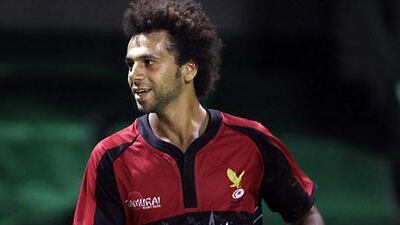UAE rugby might have suffered another chastening week on the field at international level, but the changing face of the game here continues to gather pace.
Cyrus Homayoun became the first Emirati to start a Test match when he lined up at fullback for the national side against Brazil in the Emirates Cup of Nations on Tuesday.
Two other UAE nationals, Ali Mohammed, the wing, and Mohanned Shaker, the lock forward, were also handed game time as replacements in that match.
The possible contingent of five Emiratis in the squad for Friday's meeting with Kenya in Dubai is the most there has been for a rugby international to date.
The increasing presence of indigenous players at the top level has coincided with the Abu Dhabi Saracens becoming the first UAE club to appoint an Emirati development officer this week.
Mohammed Hassan Rahma, who made his international debut at the Dubai Rugby Sevens at the start of this month, will juggle his day job with his new role as the club's director for development of Emirati rugby.
The club have two English-speaking development officers, and this is another sign of their commitment to the grassroots game, according to Brett Bowie, the Saracens chairman.
"[Rahma] will be going into schools and speaking to the boys there about what rugby is all about, Emirati to Emirati," Bowie said.
"With his experience, and his background with the national team, it is about leveraging that to get young guys into touch rugby, then further down the track the real game."
Saracens, who have played in the second tier UAE Conference since entering domestic competition at the start of this season, have ambitious development plans.
The club also recently signed an association with Llandovery College, the prolific Welsh school that is the alma mater of George North and Alun Wyn Jones, the current Wales international players.
The link up is expected to see pupils live and coach in the capital during their gap years between leaving the school and attending university, and play for the club.
The Saracens squad has 21 different nationalities, with the appointment of Rahma aimed at improving the Arab quota, according to Dave Jackson, the club president.
"It is about building the enthusiasm among Emiratis, and creating heroes like Mo," Jackson said. "When they see players like him on the field, they realise they can play for the national team."


